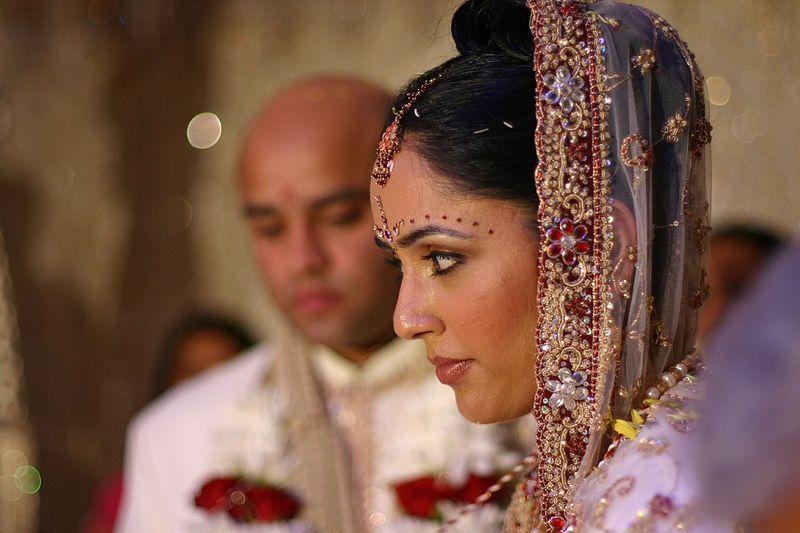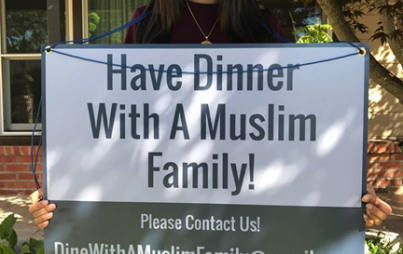
Credit: Wikimedia Commons
So the term 'jihad' is a pretty loaded—and misunderstood—term in the West, often stirring up images of gore and explosions. And now in India the notion of 'love jihad' is at the forefront of national conversations . . . but what does this phrase even refer to?
First up, the facts on jihad. Literally, the Arabic word translates merely to "exerted effort." And it has a range of interpretations—for some it connotes an inner struggle to improve oneself within Islam, standing up for and defending justice. The so-called jihad of the sword, however, has earned the term its lion's share of global attention.
Stemming back to ancient times when Muslims were being driven from their land, the prophet Idris stated that God permitted Muslims to fight those that had transgressed against them. This has led many to interpret there to be a mandated clash of religions—for Muslims to spread Islam via violence. The obvious modern day examples of this extremist interpretation is captured by the brutality of Al Qaeda and Islamic State.
'Love jihad,' though decidedly less violent, is within this vein of spreading Islam—only instead of using swords, men are, according to some, making women swoon.
The Lowdown On 'Love Jihad'
The notion of 'love jihad' has been buzzing recently in the Indian state of Uttar Pradesh. Radical Hindu organizations are using the term to refer to what they claim is the growing phenomenon of the forcible conversion of Hindu girls to Islam through marriage. That is, Muslim men are feigning Hinduism, wooing Hindu women, duping them into marrying them, and, finally, forcing them to convert.
While the idea conjures up rather ridiculous visuals of Muslim men lining up with roses and engaging in intense seduction training, the radical Hindu nationalist organization Rashtriya Swayamsevak Sangh (RSS) has been working to convince Hindus that 'love jihad' is real—and a real threat to Hindus. They site the Muzaffarnagar riots and recent gang rape in Meerut as the work of Muslim men attempting to convert Hindu women to Islam to expand the reach and power of Muslims.
While the concept—which Muslim leaders have firmly rejected as "false propaganda"—has been around since 2009, discussion of it rocketed to a nationwide level in recent weeks when gold-medalist, rifle-shooter Tara Shahdeo alleged that she'd been attacked by her husband Ranjit Kumar Kohli. She claims he tortured her for her refusal to convert to Islam—and that she only found out her husband was really a Muslim named Rakibul Hasan on the night after their wedding.
Shahdeo's story is absolutely grim. She believed her husband-to-be was Hindu—all of their wedding rituals were performed according to Hindi tradition—yet none of it proved to be true. Soon after her wedding she allegedly discovered that her new husband brought 20 men to forcibly convert her to Islam and change her name to Sara. When she refused, they beat her, sexually abused her, and set a dog on her. She ultimately got word to her family and was rescued on August 19.
In a similar instance, the Times of India recently reported the case of another Hindu woman who was deceived by a Muslim man who'd faked his identity. The girl had eloped with him, believing him to be Hindu. By the time she discovered the truth that he was Muslim, she was pregnant. He is now behind bars.
Just yesterday, a community in Uttar Pradesh has called on girls to stop using cell phones for fear that they will fall victim to 'love jihad.'
Not that concerns of 'love jihad' are restricted just to the state of Uttar Pradesh or Hindu communities however. In Mangalore, Christian groups are also alarmed about the practice. Jagadish Shenava, a lawyer and politician based in Mangalore, even goes as far as to say that all the missing girls in the region are missing due to 'love jihad.'
Is 'Love Jihad' Real?
Of course we have to question the very notion of such a practice—if it even is indeed a real phenomenon and not just political propaganda. We do live in the twenty-first century, where women and girls are more aware and vocal about their rights than ever before. The idea that Muslim men can seduce Hindu girls and women into adopting Islam is steeped in the assumption that Hindu girls and women are gullible and weak. 'Love jihad' (and efforts to protect women from it by banning cell phones), infantilizes women and suggests that women are just passive victims, lacking in intellect, and in need of monitoring and control.
Not to mention, it completely overlooks the fact that women can, and do, willingly fall in love with Muslim men.
Overall, it seems 'love jihad' is the politicization of an issue to generate social justification for moral policing by radical Hindus. Despite 'love' being one-half of its name, 'love jihad' and the conversations surrounding it have the power to stoke political and communal flames. The result is a dangerous polarization of society, as demonstrated by the recent escalating tensions between Muslims and Hindus—and all at the expense of women's right to self-determination.






